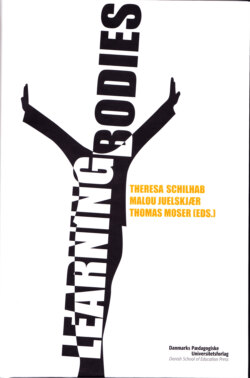Читать книгу Learning Bodies - Группа авторов - Страница 15
На сайте Литреса книга снята с продажи.
Is the body dispensable?
ОглавлениеThus far, we can conclude that the body perceives information about the versatility of the conditions throughout the biking activity, and it executes (mechanically) the activity.
But apart from these obvious contributions to the activity, the question remains: is the body decisive for biking; i.e., does it add processes without which biking could not be accomplished? To sharpen our focus, we are not interested in the imperative of the body as a provider of energy and nourishment and the mechanical device by which we subsist. Though undoubtedly vital to existence, as various illnesses teach us, we want to analyse whether the body is imperative to cognition. Accordingly, we are intentionally questioning the primacy of the mind/head in cognition. We are specifically interested in the body as an active component that adds uniquely and indispensably to cognition.
To rephrase the question: is it unproblematic to replace that part of the body involved in biking with prostheses to carry out the simple task of conveying information about stimuli? Suppose a person born without limbs could be interfaced with a computer that simulated stimulation of all senses at the neural level in the same way that natural biking would do4 – that is, all neurons concerned with learning, understanding and maintaining biking were fed with information the normal novice biker would acquire to sustain the illusion of activity in normal limbs. What would happen if a person, after being exposed to huge amounts of simulated bike learning, became an expert biker (in this rather artificial sense of the term) and went through a successful leg and arm operation that miraculously gave him full functionality? Would he use his arms and legs as nimbly as if he had had normal ones during training? Or if anything went lost because of the new limbs’ lack of history, what kind of knowledge would it be?
If he behaved normally, we could conclude that the limbs are merely conveyors of information and we would endorse the idea of information as propositional and symbolic (Collins 2000). In that sense, the body would be a mere remedy for – and incidental to – our learning ability. Since we could circumvent the body by using prostheses, it would be a sufficient, but not necessary, condition for our ability to ride a bike.
To spell it out, if nothing was lost, it would make no difference to biking skill if the artificial expert had an operation or prostheses as long as both solutions were operable at the same level as normal limbs. On the other hand, if knowledge was somehow lost, we would have to conclude that the limbs (and thus the body) play a more active part in developing skills.
